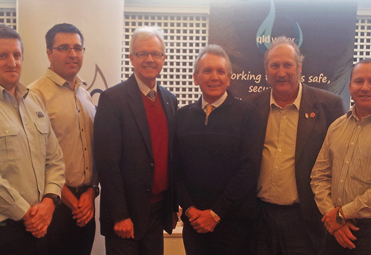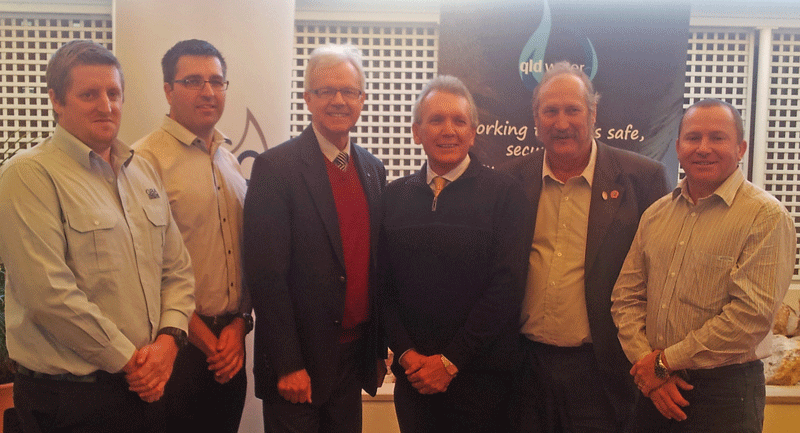Outback Regional Alliance Driving the State's Agenda

The past week has been an exciting one for the Queensland Water Regional Alliance Program (QWRAP) with the Minister for Energy and Water Supply, The Honourable Mark McArdle, choosing the first pilot region for the program to promote Water Q which was launched only two days before.
Talking at the Outback Regional Water Group’s (ORWG) showcase event in Longreach, Minister McArdle said a key element of the State’s 30 year strategy was regional alliances, and that the ORWG was driving the agenda.
At the heart of this Outback collaboration sits the Central Western Queensland Remote Area Planning and Development Board (RAPAD), a unified local government organisation that have been successfully assisting and facilitating the growth and development of the Outback region for almost a decade.
In 2011 the RAPAD Board acted to jointly improve urban water services in the region and endorsed their participation in the Queensland Water Regional Alliance Program (QWRAP), a state-wide initiative of the Local Government Association Queensland (LGAQ) and managed by the Queensland Water Directorate (qldwater).
With funding support from the Queensland Government, QWRAP was set up to examine alternative models for management and governance of the urban water industry in regional Queensland. The RAPAD group of Councils was the first to sign up to this program, establishing the ORWG comprising the six local government areas of Barcaldine Regional Council, Longreach Regional Council, Barcoo Shire Council, Boulia Shire Council, Diamantina Shire Council and Winton Shire Council to take a leadership and coordination role in urban water. All of these councils with the exception of Winton have agreed to collaborate further and are currently investigating the establishment of the Outback Regional Water Alliance.
Within the Alliance area there are eighteen communities provided with drinking water from a variety of water sources and involving different levels of treatment. With an average of just 314 mm of rainfall per year, water out west is a scarce commodity. But here, like anywhere else in the developed world, communities have come to take good quality drinking water for granted and the hard work of water service providers can go unnoticed.
Where service providers along the coast can rely on more income from a bigger and growing population, outback councils must provide safe and reliable services with fewer revenue sources and the added costs of remoteness. The QWRAP investigation showed that some of these costs can be mitigated through joint activities, bringing together the strengths of the diverse ORWG councils.
Water infrastructure is expensive and often long lived and good strategic planning and management is required to ensure it is developed and maintained in an efficient and effective manner. Through sharing knowledge and expertise strategically across the region, some of these needs can be met at a lower cost to each council with the potential for improved service levels across the region’s communities.
The Alliance councils have already had success with joint initiatives such as shared training and a regional response to new regulatory frameworks for water supply and sewerage. Working as a group can provide for economies of scale, increase the negotiating power of the councils and reduce duplication in strategic planning and management. The projected savings for the region are high and are being constantly reassessed as the Alliance approach is developed.
The strong history of public-private partnerships in the region must also be acknowledged as a key driver of innovation and regional collaboration.
Councils that are too small to employ a full-time engineer have often developed relationships with consulting engineering companies who sometimes provide semi-permanent staff within a council’s offices. Much of the development and innovation in water and sewerage operations in the smaller councils has been driven through this process in the past.
Minister McArdle praised the group for being united by common goals rather than common problems.
The other QWRAP regions include the Far North Queensland, the Wide Bay Burnett and the Whitsunday Regional Organisation of Councils.
